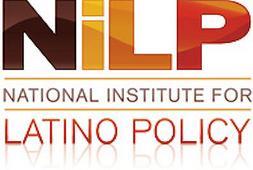
NiLP Guest Commentary
The Puerto Rico Status Referendum: Should 23% of Voters Decide the Future of a Nation?
By Miguel E. Fiol
The NiLP Report (June 18, 2017)
On Sunday, June 11th, Puerto Rico's status vote was not reflective or representative of the island's political status options. Through it, statehood won handily with an extremely low voter turnout --- only 23% of registered voters. There were more people on the beaches than at polls!
The reason for the boycott was the nature of the vote itself-only one party went to the vote. It's like a ball game with only one team or, pathetically, a dance where there is no partner! The vote was imposed by the governing party, which favors statehood. The US Justice Department did not endorse it. Actually, it is reported than in last minute effort to stop it, US Attorney General Jeff Session questioned the hastily convened vote and requested more time to validate the other options suggested. Puerto Rico Governor Rosselló did not disclose this last letter to the voters, apparently to not derail the faltering plebiscite whose validity was already being questioned.
Based on President Obama's budget appropriation of 2.5 million dollars for a status vote, the Justice Department had to approve the formulas on the plebiscite (another instance of our colonial status of Commonwealth) for its funding to occur. Sunday's vote cost our struggling economy at least 7.2 million dollars, and without the federal funding!!
The vote was not endorsed by Congress either, same as all other four plebiscites, and really had only one formula on the ballot: statehood. The Independence Party withdrew its support, and colonial Commonwealth party did not endorse it either, and both boycotted the vote.
Puerto Rico's colonial status since 1898 has been a thorn in the US side and the primary cause of the economic crisis now crippling the island. Many economists, along with US Senator Bernie Sanders, believe that Wall Street's actions on the Commonwealth's municipal bonds and vulture funds, together with the elimination of tax exception IRS Rule 936 in 1991 led the island government into the current crisis and to the current ruling of the country by a Congressionally-appointed omnipotent Fiscal Oversight Board.
The Statehood party is "dreaming awake" that Statehood is a done deal and wants to "shove it down the throat" of the Puerto Rican and American people.
The other referendum touted as supporting statehood is the vote of 2012. This one did not add up for Statehood either. The votes for Statehood were 45% and not statehood 55% (if you incude the independence and protest votes). The real winner was 54% of voters who wanted "decolonization" to occur. The one clear conclusion that our Commonwealth is no longer acceptable has been widely accepted: by Democrats and Republicans at several House status hearingsin Washington as the only clear result of that referendum. Simultaneously, regarfding the Fiscal Oversight Board approval by Congress, the US Supreme Court restated our colonial status in two landmark cases.
The upcoming campaign in Washington to push for statehood is meritless, abusive and has no valid basis. It willonly serve to inflame the situation further and could lead to violence, as it has in the past.
I believe that the upcoming hearing of the Committee on Natural Resources of the House will be moderate and that democracy will prevail. They will have to recognize that a minority of 23% of voters cannot decide the future of a whole nation!
Puerto Rico needs to be respected as a nation of proud people not wanting to be kept anymore in a degrading colonial status. This is a relationship where our laws can be vetoed by a Congress in which we have no vote; where the President is not elected by any island Puerto Ricans; where a Federal Supreme Court rules on us but is not appointed by us; and where we have to go to war to die without voting for it.
A Puerto Rico Constuent Assembly on Status focusing on three non-colonial formulas, UN-supervised, and where the options are well defined and judged as viable for both sides, is the way to proceed. If left to politicians the process will be biased and fraught with undemocratic decisions with dire consequences, as it has occurred in June's 11 hasty votes, My solution is such an Assembly where political maneuvering is minimized, and the US Congress is committed to resolving our century-old colonial problem
Most Puerto Ricans are committed to a non-political democratic process and not this sham plebiscite. If the process of choosing a final status is perverted, manipulated or forced, it could flare up resentment and even violence. Solving the status issue in the right way would alleviate the financial crisis that so tragically affects our people's well-being.
Miguel E. Fiol, MD, is a member of the Puerto Rican in Minnesota Committee. He is an Associate Professor in the Department of Neurology, Epilepsy Care Center of the University of Minnesota Medical School. Dr. Fiol can be reached at fiolx001@umn.edu.
_______________________________________________________________________________________________________
The NiLP Report on Latino Policy & Politics is an online information service provided by the National Institute for Latino Policy. For further information, visit www.latinopolicy. org. Send comments to editor@latinopolicy.org.